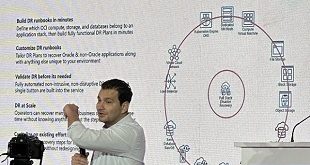
Trying to overcome a deficient professional class through education and by cultivating a performance-based society
Last week, New Vision reported that Rwanda is recruiting teachers from Uganda to teach in its schools. Many Ugandans may have seen this as an opportunity to get a well paying job, but the story reflects a severe skills gap that bedevils Rwanda. It is not simply about lack of English teachers. Rwanda lacks very basic skills to help it achieve many of its ambitious development plans and objectives.
The New vision story immediately reminded me of 2010 when a group of former Rwanda Patriotic Front (RPF) officials formed a new political party, the Rwanda National Congress (RNC). Composed of Patrick Karegyeya, Theogene Rudasingwa, Kayumba Nyamwasa and Gerald Gahima, the RNC issued a manifesto entitled the Rwanda Briefing. Although all its leaders are Tutsi, RNC argued that Hutus in Rwanda are marginalized. Ethnicity is one of those emotive pranks African elites use to whip sentiments in an effort to marshal political support.
As a regular visitor to Rwanda, I wonder how that country achieves the things it has given its paucity of skills. For example, it is very likely that seven out of every ten barbers in Rwanda are Ugandan or Congolese. If you are building a house in Rwanda, seven out of every ten plumbers, electricians, masons, carpenters, bricklayers, etc will be Ugandan – or at least not Rwandan. Equally if you take your car to a garage for repair it is possible that for every ten mechanics, six will be Ugandan.
In nearly every routine service, it is difficult to find skilled and experience people in Rwanda. According to a judicial census carried out in 1992, there were only 37 lawyers in Rwanda’s judiciary. After the genocide in 1994, either as a result of having been complicit in the genocide or having been killed on account of it, only two lawyers remained in the country’s judiciary. In 1994, RPF inherited less than 20 doctors, yet within its own ranks it had 36 doctors. All this is largely because there had been limited investment in education and skills in Rwanda before 1994.
For example, between 1962 (when it got independence) and 1994 (when the RPF captured power), Rwanda had graduated only 1,926 students from its national university at Butare. That was equal to one year’s graduation at Makerere University in 1985. In fact, the system of education made it difficult for the university to produce skilled professionals like doctors, lawyers and engineers. For instance, the national university would admit a cohort of 20 students to do medicine, a course lasting five years. Then there would be no fresh admissions until this cohort had finished its course and graduated.
Moreover, the system worked in such a manner that along the way many students would drop out of medicine and do an ordinary bachelor’s degree. At the end of the five years, only five or six students would graduate as doctors. But since there was no concept of Year One, Year Two, etc, it meant that after five years Rwanda would produce only five doctors; in ten years, it would produce only ten doctors. The same applied to other professions.
Thus, when the genocide came, it eliminated an already miniscule professional class as many educated elites were either killers or targets of the killings. The RPF therefore inherited a critical skills gap, which it had to fill using returning exiles (who were mostly Tutsi) and other non Rwandans. This history partly explains why there is a disproportionate number of Tutsi (relative to their numbers) in key positions in all spheres of Rwandan life – the government, the private sector and civil society.
The alternative would have been to hire people into key positions because they are Hutu i.e. to create an appearance of proportional representation. This has been the strategy of most governments in post-colonial Africa. By co-opting many Hutu elites without qualifications into the bureaucracy and other key positions purely on their identity, the RPF would have created an appearance of ethnic balancing that has been the magic bullet to legitimacy and social integration in most of post-colonial Africa.
Instead, more than any government I know in Africa, RPF has based its legitimacy largely (certainly not entirely) on performance, especially through the delivery of public goods and services. Why did the RPF choose this route? Possibly its leaders felt that it could not trust Hutu elites enough. If it based its legitimacy almost entirely on co-opting Hutu elites, there was always the risk that they could defect. In fact RPF, which is Tutsi-led, had tried this approach in the mid to late 1990s. But because it lacked shared objectives with its partners, all too often there were tensions in its alliances leading many Hutu elites to resign. Such resignations could easily strip the RPF-led government of its legitimacy. Therefore, it is very likely that this fear has been a major driving force of performance-based legitimacy in Rwanda.
I also believe that this is the one special factor that has set Rwanda apart from its contemporaries in Africa. It is also a factor that undermines the argument that Hutus are marginalized. This is because to access any service in Rwanda, whether government scholarships or medical insurance, it is your claim to citizenship that matters, not your ethnic background.
Since 2000, Rwanda has tried to rapidly increase the skills in the country through massive education. For example, the university output has grown to over 10,000 graduates per year. The country also produces 6,000 graduates from vocational schools per year. However, getting a diploma in masonry or electrical engineering does not mean you can do a job well. That also requires getting on-job training and experience.
Thus, almost 80% of new graduates from Rwanda’s vocational schools cannot find jobs immediately in the country because private companies find the more experienced Ugandans more attractive. The challenge for Rwanda really is not one of marginalizing one group over the other–it is a lack of skills. With the new recruitment drive for Ugandan teachers, one hopes the RNC will not start to claim that Rwandans – both Hutu and Tutsi – are marginalized by Ugandans in the job market.
 The Independent Uganda: You get the Truth we Pay the Price
The Independent Uganda: You get the Truth we Pay the Price



